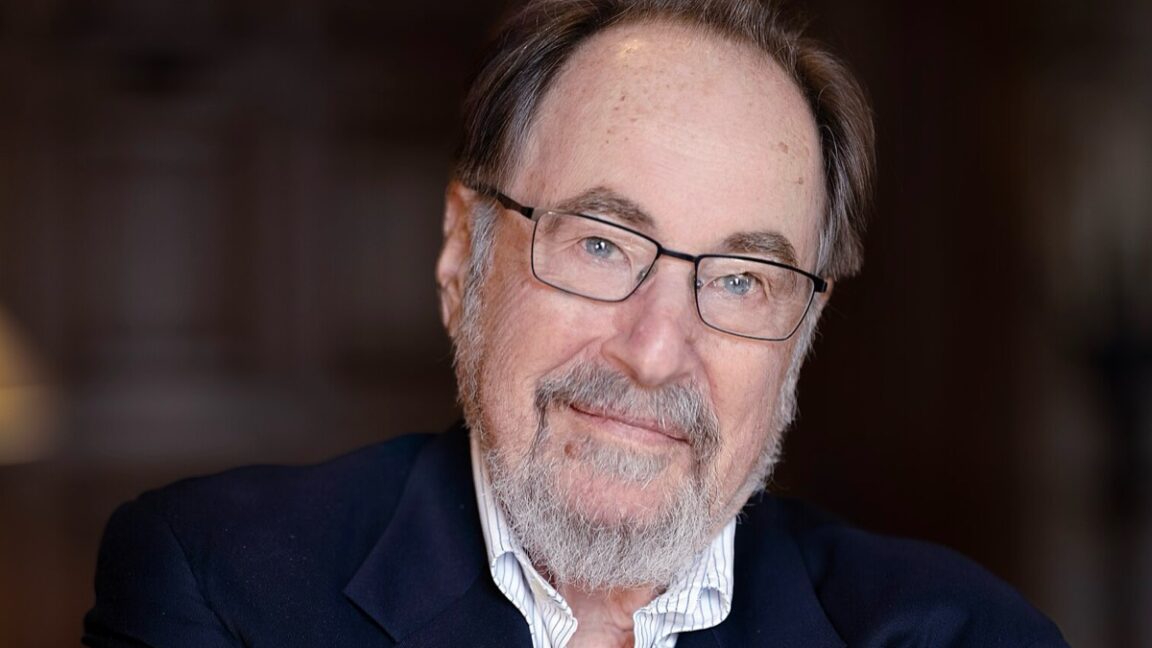Science
Renowned Scientist David Baltimore Passes Away at 87

Nobel Prize-winning molecular biologist David Baltimore has died at the age of 87 due to complications from cancer. Baltimore, a prominent figure in the scientific community, shared the 1975 Nobel Prize in Physiology for his groundbreaking work that challenged the established understanding of cellular information flow.
A Legacy of Scientific Achievement
Born in New York City in 1938, Baltimore’s early life was shaped by his father’s work in the garment industry and his mother’s role as a psychologist. His academic prowess became evident during high school when a summer studying mouse genetics at the Jackson Laboratory sparked his interest in a scientific career. He graduated from Swarthmore College and obtained his PhD in biology from Rockefeller University in 1964, focusing on viruses in animal cells.
Following his graduation, Baltimore joined the Salk Institute in San Diego, where he began his collaborative journey with fellow researchers. His career took a significant turn in 1982 when he moved to MIT to establish the Whitehead Institute for Biomedical Research. His initial studies focused on viruses such as polio and mengovirus, but he later made a pivotal discovery regarding retroviruses, identifying the enzyme now known as reverse transcriptase. This groundbreaking work demonstrated that genetic information could flow from RNA back to DNA, a finding that paved the way for gene therapy techniques that could potentially correct genetic disorders.
Reflecting on Baltimore’s influence, Thomas F. Rosenbaum, the current president of Caltech, stated, “David Baltimore’s contributions have transformed biology and medicine. His profound influence as a mentor and leader in scientific institutions has filled an extraordinary intellectual life.”
Controversies and Resilience
Despite his remarkable contributions, Baltimore’s career was marred by controversy in the late 1980s, known as “the Baltimore affair.” Although he was not accused of scientific misconduct himself, he found himself at the center of a fraud investigation involving a co-authored study with Thereza Imanishi-Kari. The investigation was initiated when a postdoctoral researcher claimed she could not replicate some of the experiments outlined in a 1986 paper regarding the immune system’s gene rearrangement. Although Baltimore defended Imanishi-Kari, the National Institutes of Health (NIH) conducted a lengthy investigation that ultimately found her guilty of research misconduct.
The fallout from the investigation forced Baltimore to resign from his presidency at Rockefeller University in 1991. Yet, his resilience shone through as he returned to MIT and continued his research, focusing on viral vectors and immune systems. In a statement to The New York Times in 1996, he acknowledged the toll the controversy had taken on him, stating he could no longer bear to read coverage about the case.
Baltimore’s commitment to science extended beyond his research. He was a vocal advocate for ethical boundaries in biological research, calling for a global ban on genome-editing techniques to alter human DNA in 2015.
After stepping down as Caltech president in 2006, Baltimore continued to conduct research and mentor students, spending summers at Woods Hole, Massachusetts. His contributions to science will be remembered alongside his multifaceted personal interests, which included music, art, and a passion for improving the human condition. Thomas Palfrey, an economics professor emeritus at Caltech, noted, “He led a very multifaceted life, caring deeply about his friends and the world.”
David Baltimore’s legacy as a pioneering scientist and impactful mentor will resonate in the fields of biology and medicine for generations to come. He is survived by his wife of 57 years, biologist Alice Huang, as well as their daughter and granddaughter.
-

 Education2 months ago
Education2 months agoBrandon University’s Failed $5 Million Project Sparks Oversight Review
-

 Lifestyle3 months ago
Lifestyle3 months agoWinnipeg Celebrates Culinary Creativity During Le Burger Week 2025
-

 Science3 months ago
Science3 months agoMicrosoft Confirms U.S. Law Overrules Canadian Data Sovereignty
-

 Health3 months ago
Health3 months agoMontreal’s Groupe Marcelle Leads Canadian Cosmetic Industry Growth
-

 Science3 months ago
Science3 months agoTech Innovator Amandipp Singh Transforms Hiring for Disabled
-

 Technology3 months ago
Technology3 months agoDragon Ball: Sparking! Zero Launching on Switch and Switch 2 This November
-

 Education3 months ago
Education3 months agoRed River College Launches New Programs to Address Industry Needs
-

 Technology3 months ago
Technology3 months agoGoogle Pixel 10 Pro Fold Specs Unveiled Ahead of Launch
-

 Technology1 month ago
Technology1 month agoDiscord Faces Serious Security Breach Affecting Millions
-

 Business2 months ago
Business2 months agoRocket Lab Reports Strong Q2 2025 Revenue Growth and Future Plans
-

 Science3 months ago
Science3 months agoChina’s Wukong Spacesuit Sets New Standard for AI in Space
-

 Education3 months ago
Education3 months agoAlberta Teachers’ Strike: Potential Impacts on Students and Families
-

 Technology3 months ago
Technology3 months agoWorld of Warcraft Players Buzz Over 19-Quest Bee Challenge
-

 Business3 months ago
Business3 months agoNew Estimates Reveal ChatGPT-5 Energy Use Could Soar
-

 Business3 months ago
Business3 months agoDawson City Residents Rally Around Buy Canadian Movement
-

 Education3 months ago
Education3 months agoNew SĆIȺNEW̱ SṮEȽIṮḴEȽ Elementary Opens in Langford for 2025/2026 Year
-

 Technology1 month ago
Technology1 month agoHuawei MatePad 12X Redefines Tablet Experience for Professionals
-

 Technology3 months ago
Technology3 months agoFuture Entertainment Launches DDoD with Gameplay Trailer Showcase
-

 Business3 months ago
Business3 months agoBNA Brewing to Open New Bowling Alley in Downtown Penticton
-

 Technology3 months ago
Technology3 months agoGlobal Launch of Ragnarok M: Classic Set for September 3, 2025
-

 Technology3 months ago
Technology3 months agoInnovative 140W GaN Travel Adapter Combines Power and Convenience
-

 Science3 months ago
Science3 months agoXi Labs Innovates with New AI Operating System Set for 2025 Launch
-

 Technology3 months ago
Technology3 months agoNew IDR01 Smart Ring Offers Advanced Sports Tracking for $169
-

 Technology3 months ago
Technology3 months agoDiscover the Relaxing Charm of Tiny Bookshop: A Cozy Gaming Escape










